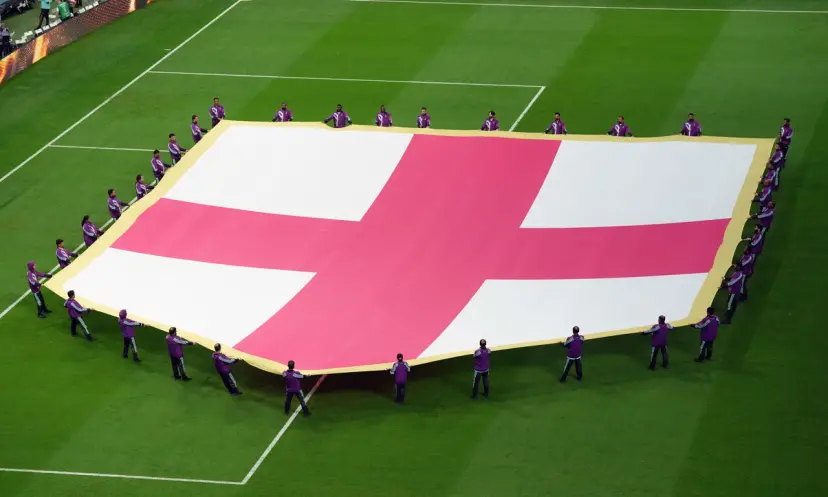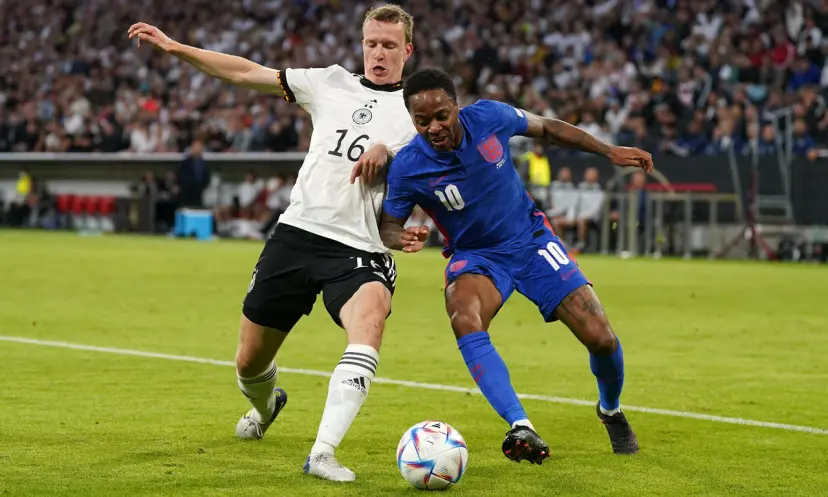Euro 2020 numbers: The stats behind the tournament
Published:
Euro 2020 numbers and statistics
With the delayed European Championship finally about to get under way, we’ve crunched the numbers from past tournaments and the qualification matches for this one to reveal what might happen this summer.
Which team has the best record at the Euros?
There have been six European Championships prior to Euro 2020 in which at least 16 teams took part. While eight nations reached the quarter-finals in at least three of these six tournaments, only one managed to do it in all of them: Portugal.
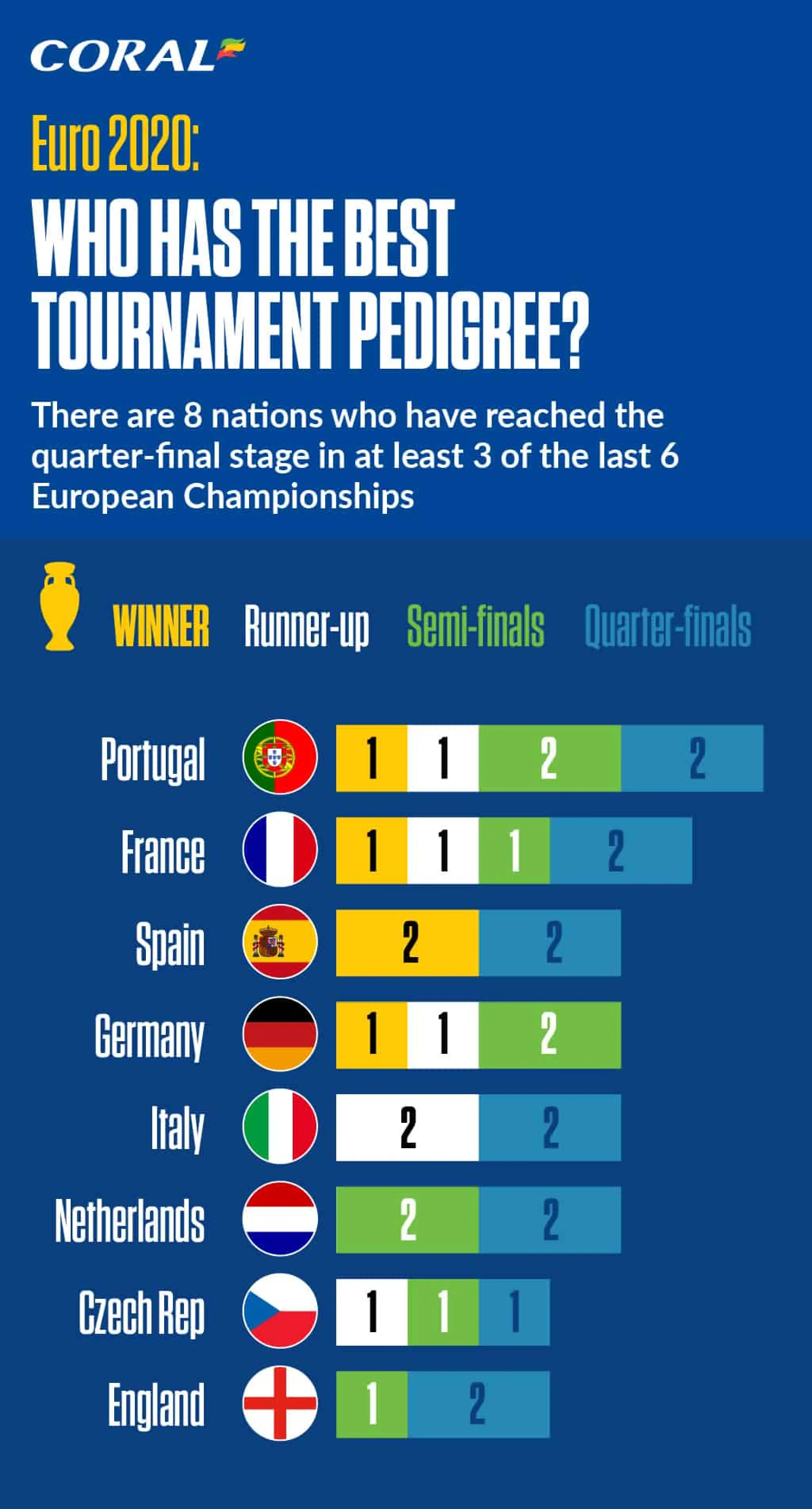
The reigning champions are also tied with Germany for the most appearances in the semi-finals or later during this period, with both having done so four times to underline their status as tournament specialists.
Do previous performances matter?
A strong showing at the previous European Championship is a reasonably good indicator of success. In five of the last six tournaments, the final featured a team who had made it to the semi-finals four years earlier. In four of those cases, that team went on to lift the trophy, which is good news for 2016’s final four of Portugal, France, Germany and Wales.

Despite being more recent, a team’s performance at the preceding World Cup seems to be less relevant to their prospects. Half of the last 12 finalists had failed to even reach the quarter-final stage at the most recent global tournament.
Which is the “group of death” at Euro 2020?
When studying the Euro 2020 numbers, we’ve assessed the strength of each group based on the latest FIFA world rankings of each of the 24 finalists and there is one that stands out as being tougher than the rest.
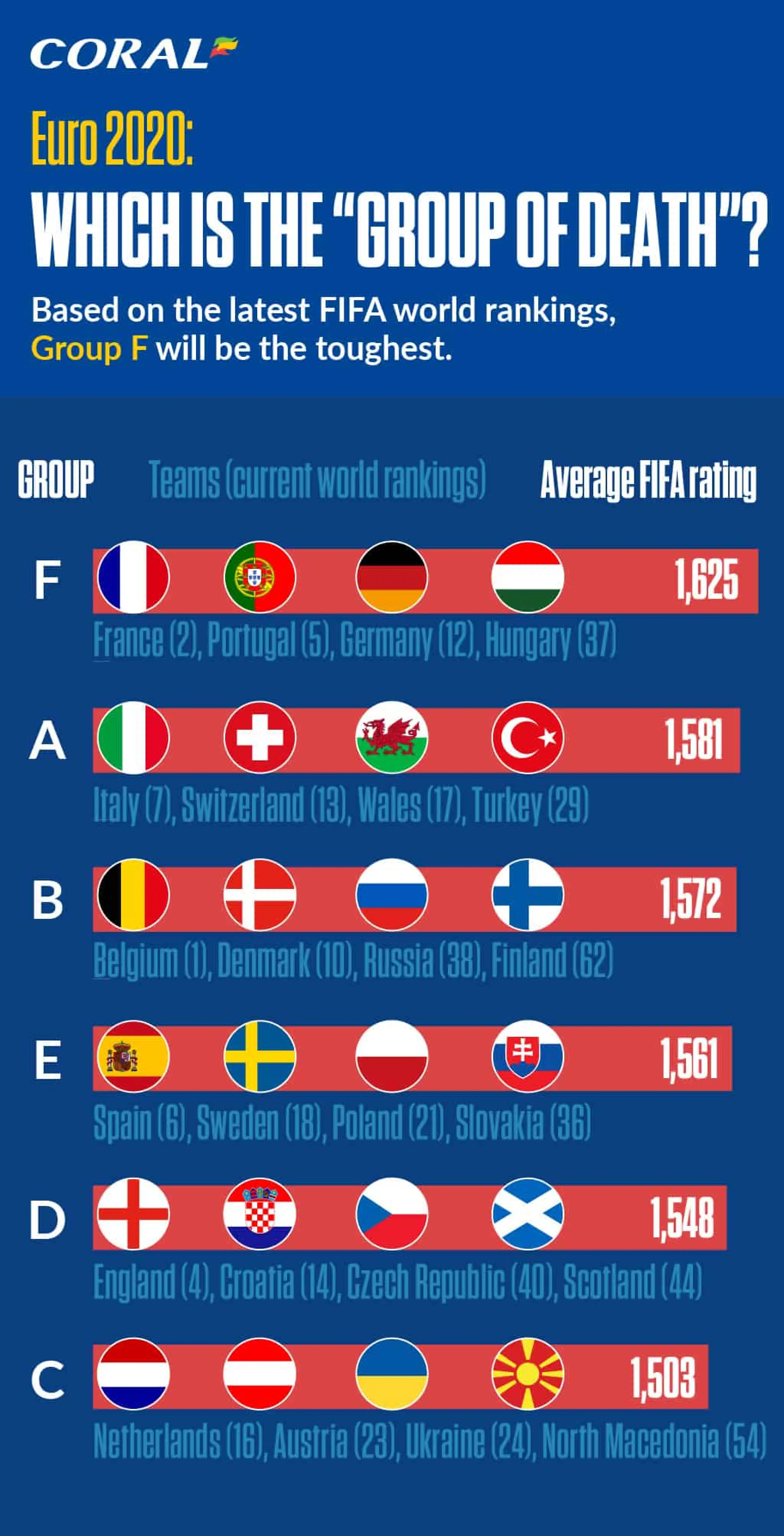
Group F contains two of the five highest-ranked teams in the world – current world champions France and defending European champions Portugal. These two met in the 2016 final and while France came off second best that day, they went on to win the World Cup in 2018.
Alongside them are three-time European champions and four-time world champions Germany, making their group one of the most formidable in the tournament’s history.
Who has the toughest – and easiest – draw?
If we average the FIFA ratings of each team’s three group stage opponents then the Netherlands look to have the easiest path to the knockout stages. The Dutch are up against Austria, Ukraine and North Macedonia, who all sit outside the current top 20 and have an average rating of just 1,471 points.

At the other end of the scale, Hungary have the toughest job as the fourth team in the “group of death”. Their three illustrious opponents have an average FIFA rating of 1,678, which is far higher than the 37th-placed Hungarians’ own 1,469.
Their prospects aren’t entirely bleak, however, as unlike at the World Cup it is possible to finish third in your group and still progress to the knockout stages. As the group phase needs to turn 24 teams into 16, the four third-placed teams with the best records will join the first and second-placed nations in the Round of 16.
This is the exact route Portugal took on their way to winning Euro 2016. Despite failing to win any of their group games, they progressed as one of the best third-placed teams with three draws.
Coincidentally it was a Cristiano Ronaldo equaliser in a six-goal thriller against Hungary that saw them qualify from the same group five years ago.
What can we expect from each group?
We’ve analysed every qualifying match and ranked all 24 teams across a wide range of metrics to highlight an interesting statistic for each group.
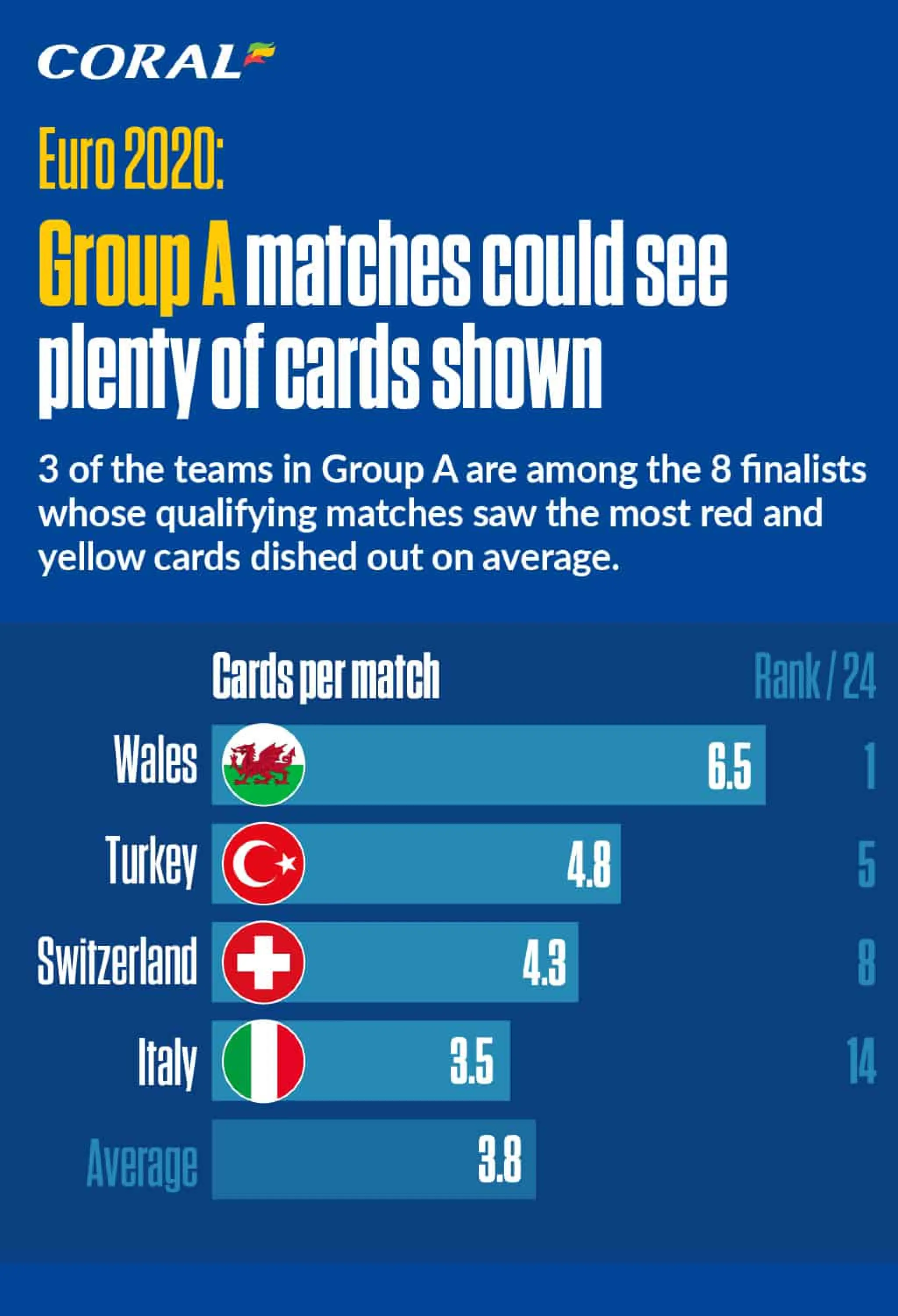
Group A looks like it should keep referees busy as three of its teams are among the eight finalists whose qualifying matches saw the most cards dished out on average.
Wales’ games generated cards at an eye-watering rate of 6.5 per match, so their clash with Turkey – who saw 4.8 on average – could be the most bad-tempered of the tournament.
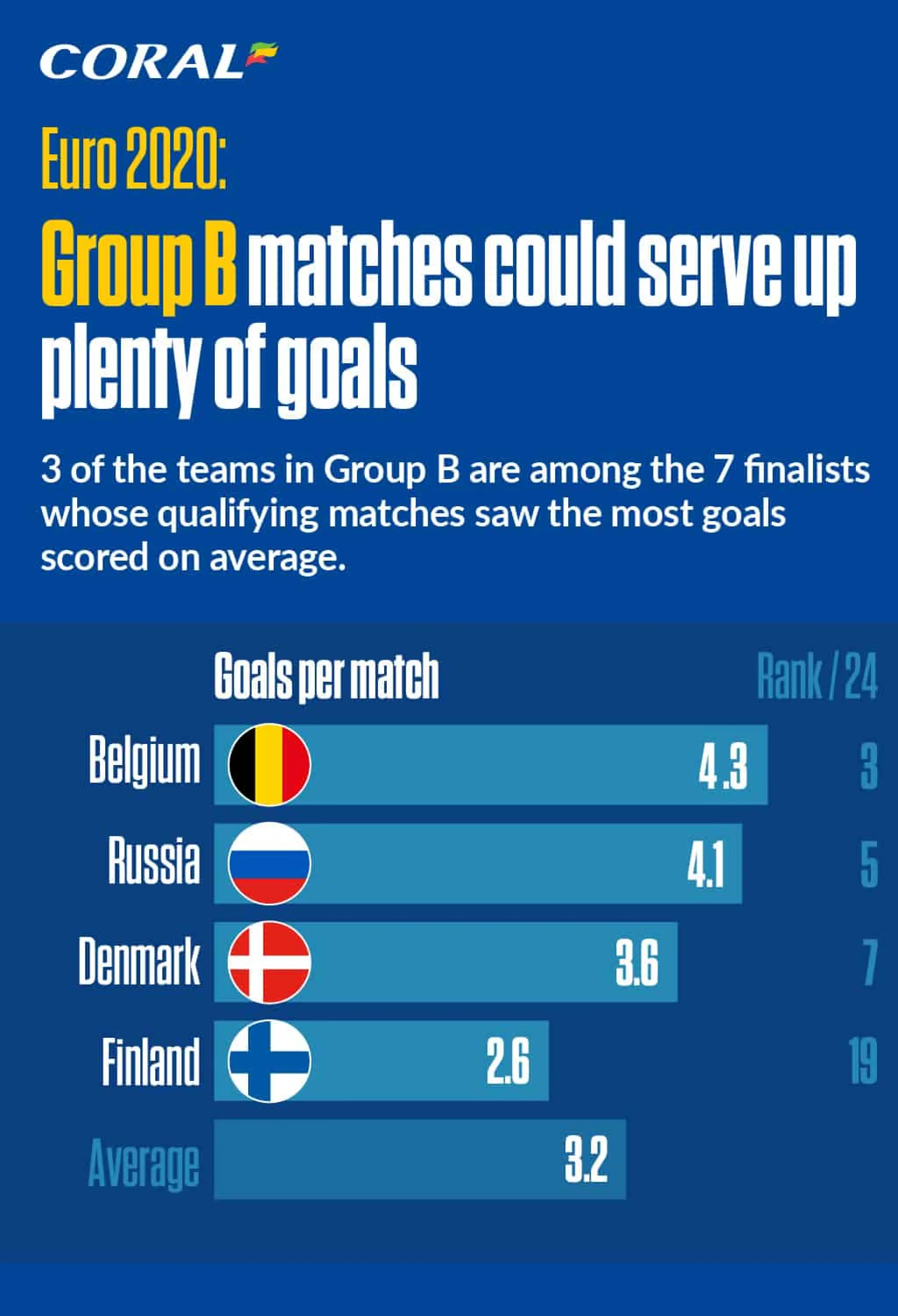
If you’re looking for goals then Group B could be your best bet as it contains three of the seven finalists whose qualifying matches yielded the most on average.
Belgium and Russia both saw over four per match so when they face each other in the first match of their respective campaigns it could set a high bar for the rest of the tournament.
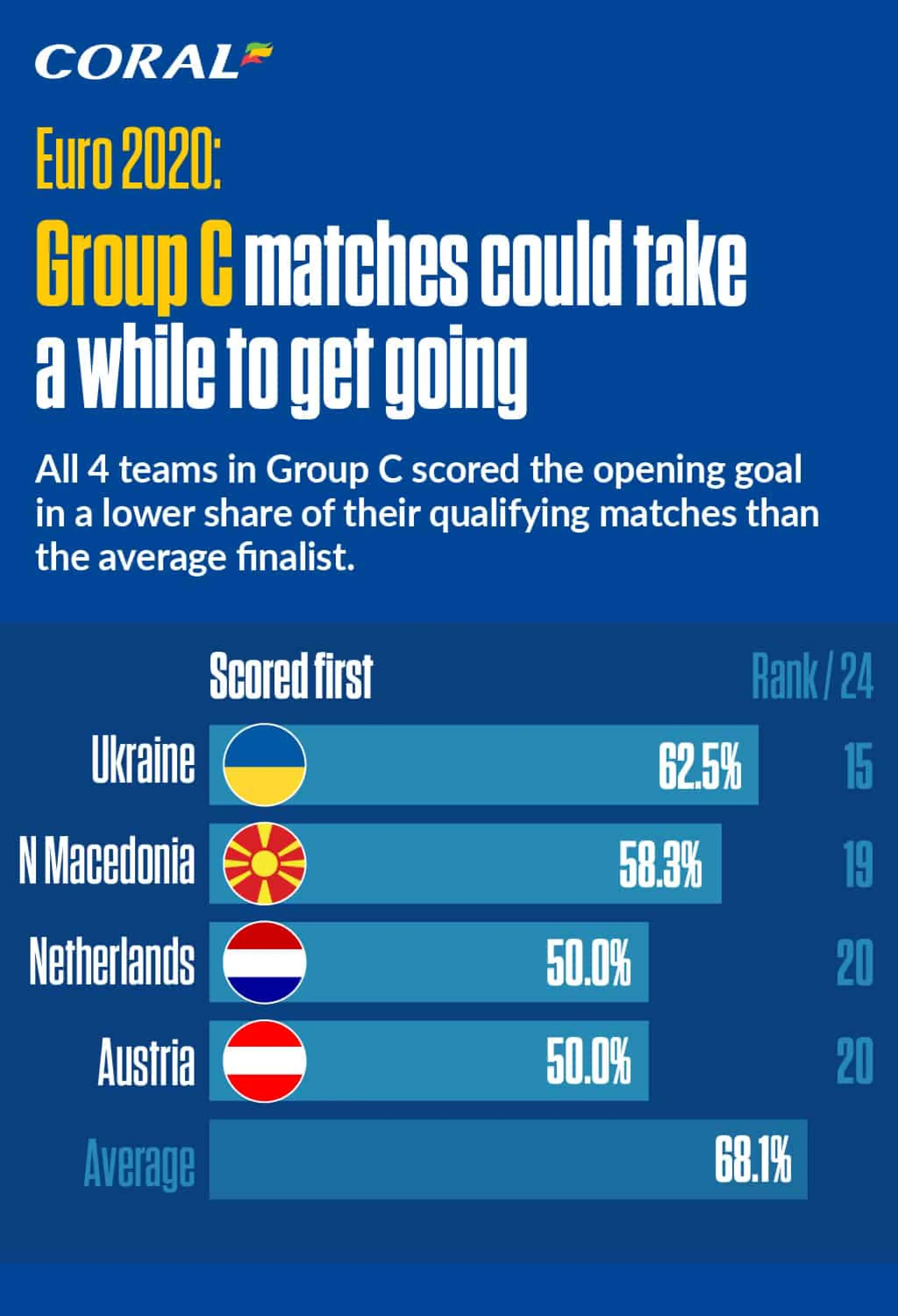
In contrast Group C games could take a while to get going as all four teams scored the opening goal of the game less often than the average finalist during qualifying.
The match between the Netherlands and Austria, in particular, could be a slow burner as both only opened the scoring in half of their games during qualification.
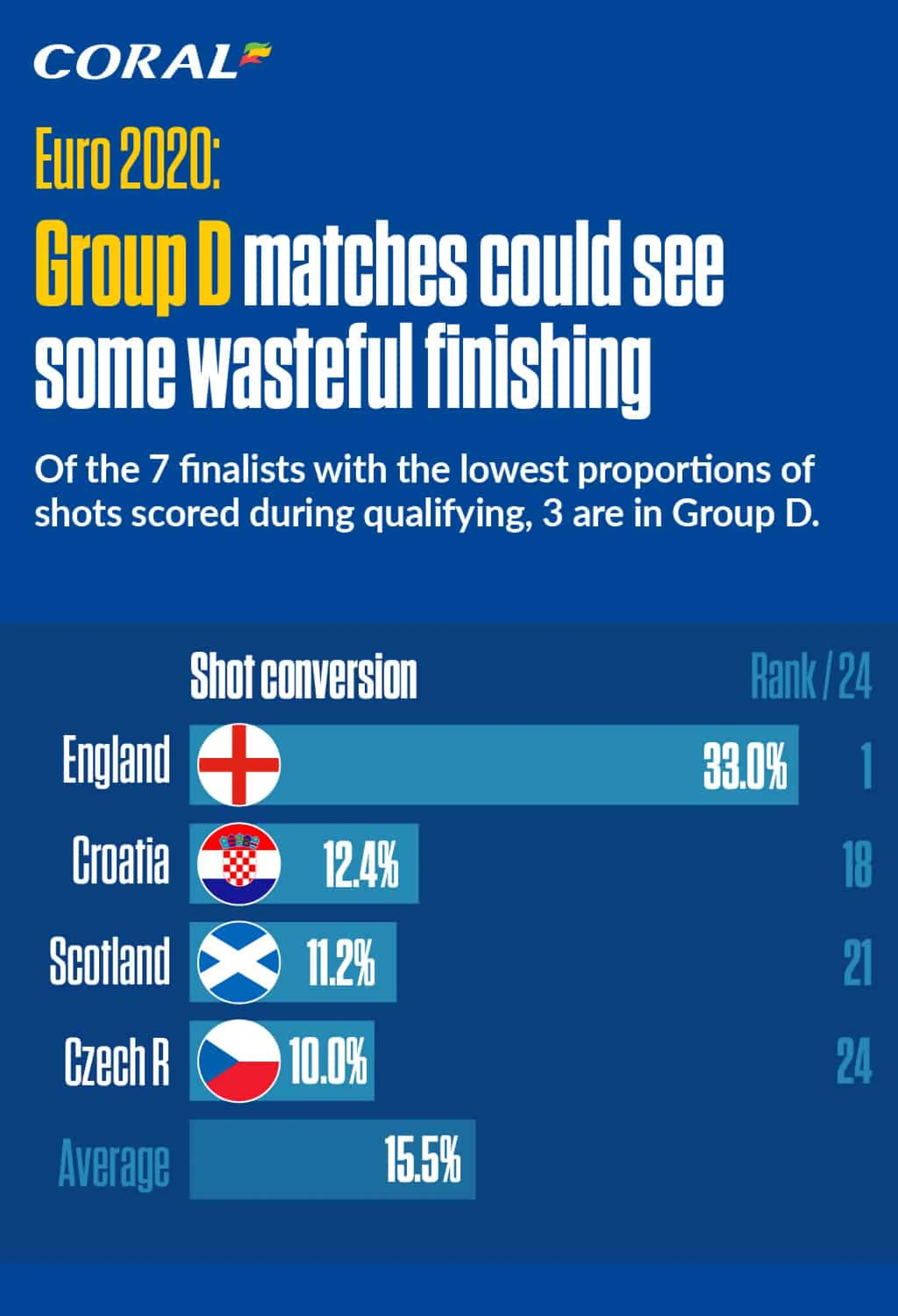
Over in Group D, England have been drawn with three teams who struggled to convert their chances on the road to the tournament.
While Gareth Southgate’s side turned shots into goals more efficiently than any other finalist, their opponents in the group stage were all among the seven most wasteful finishers to qualify.
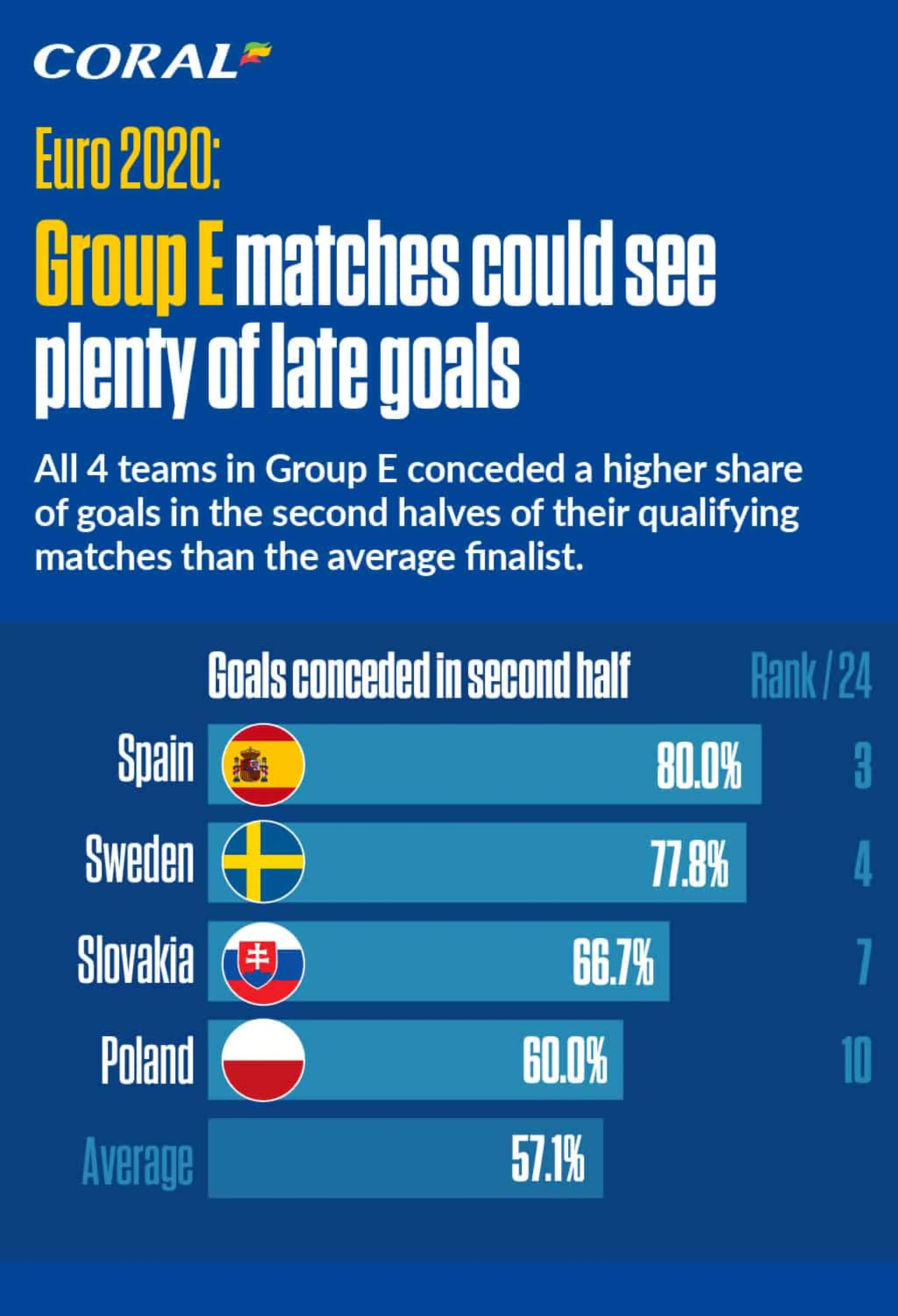
Switching off early could be a bad idea when watching a Group E game, given the high proportion of goals that all four teams conceded in the second half.
Spain and Sweden each shipped more than three quarters of their goals after half-time so their encounter could keep us entertained right up to the final whistle.
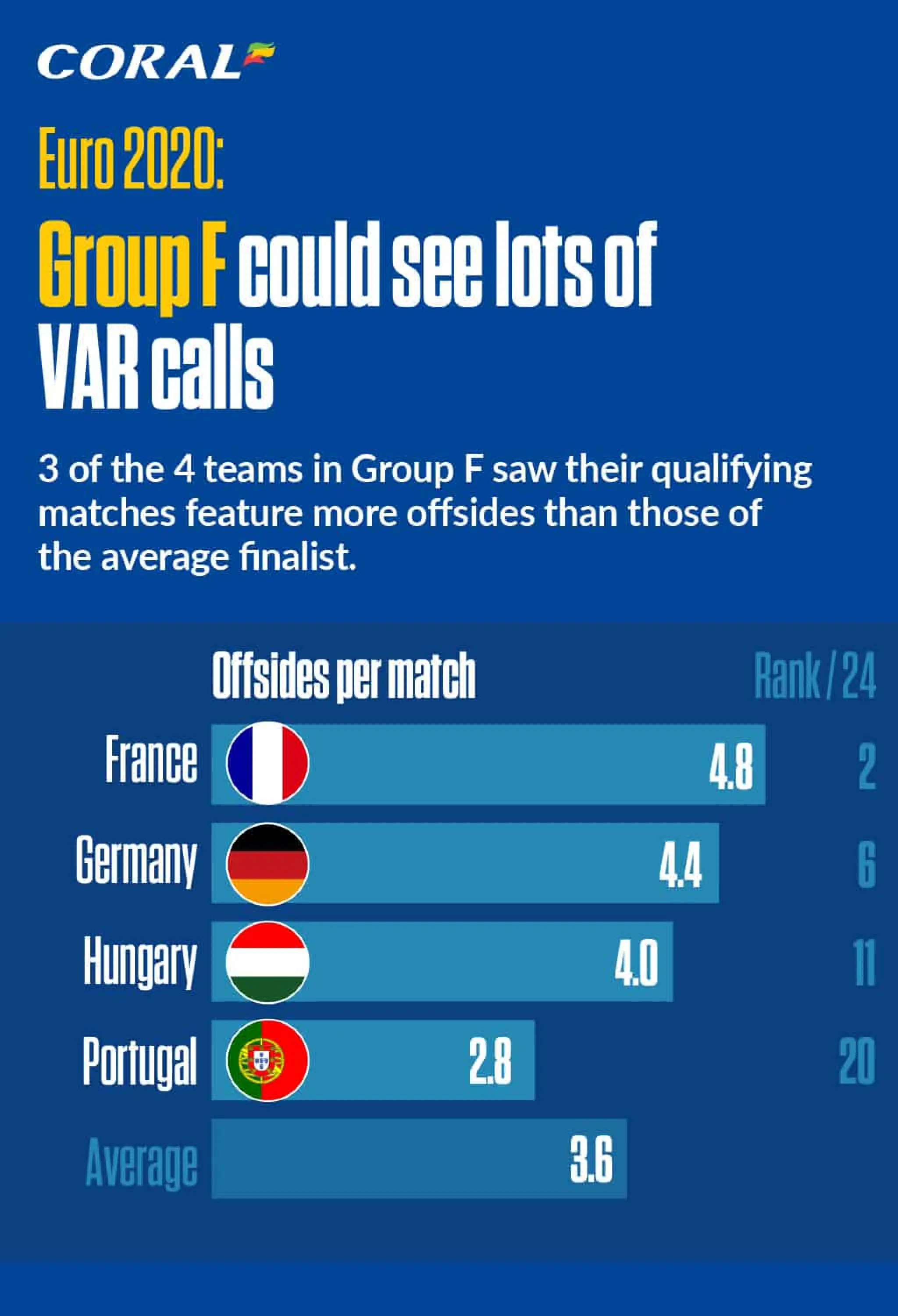
In Group F we could see matches decided off the pitch rather than on it, with three of its teams having seen a higher-than-average number of offsides during their qualifying campaign.
Therefore, the divisive VAR system may end up stealing the headlines, with France’s match against Germany likely to provide an early test of the remote refereeing team.
All odds and markets correct as of date of publication
